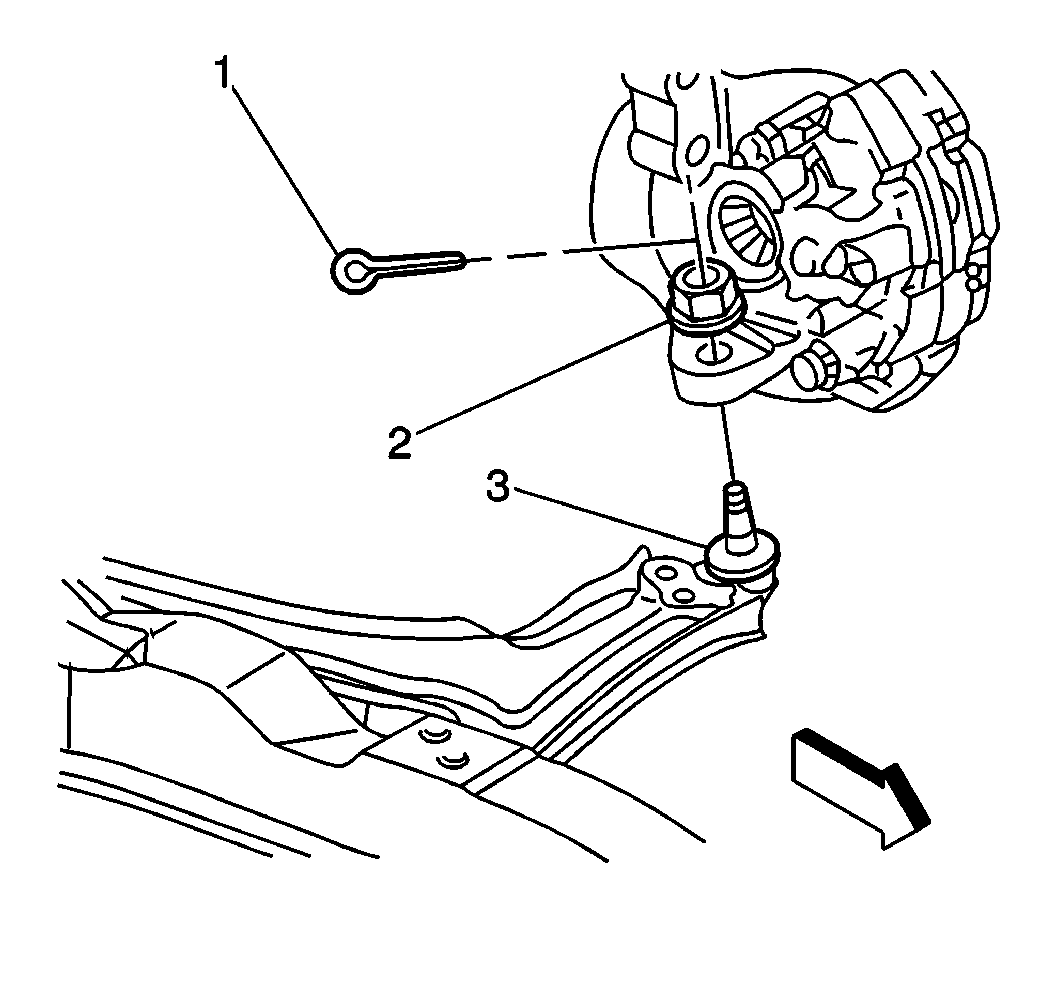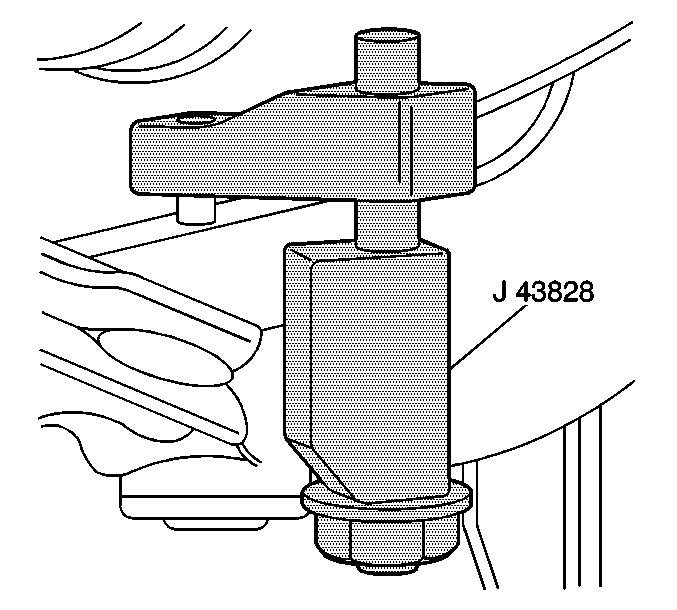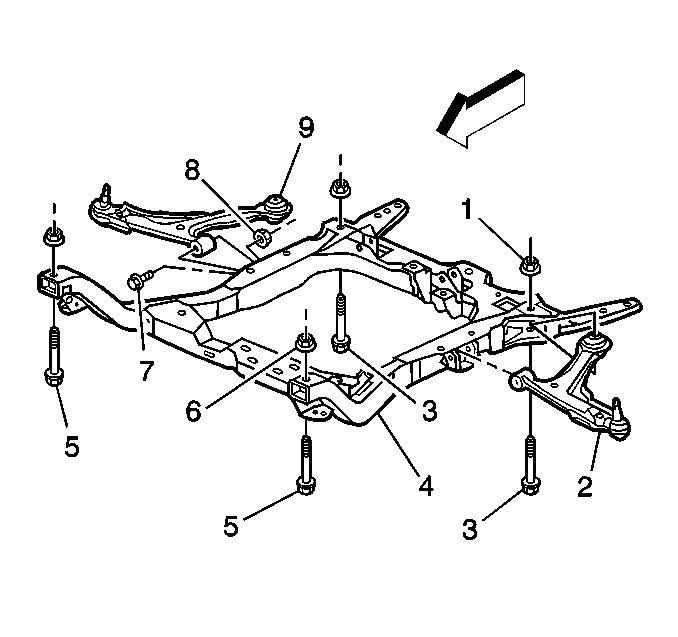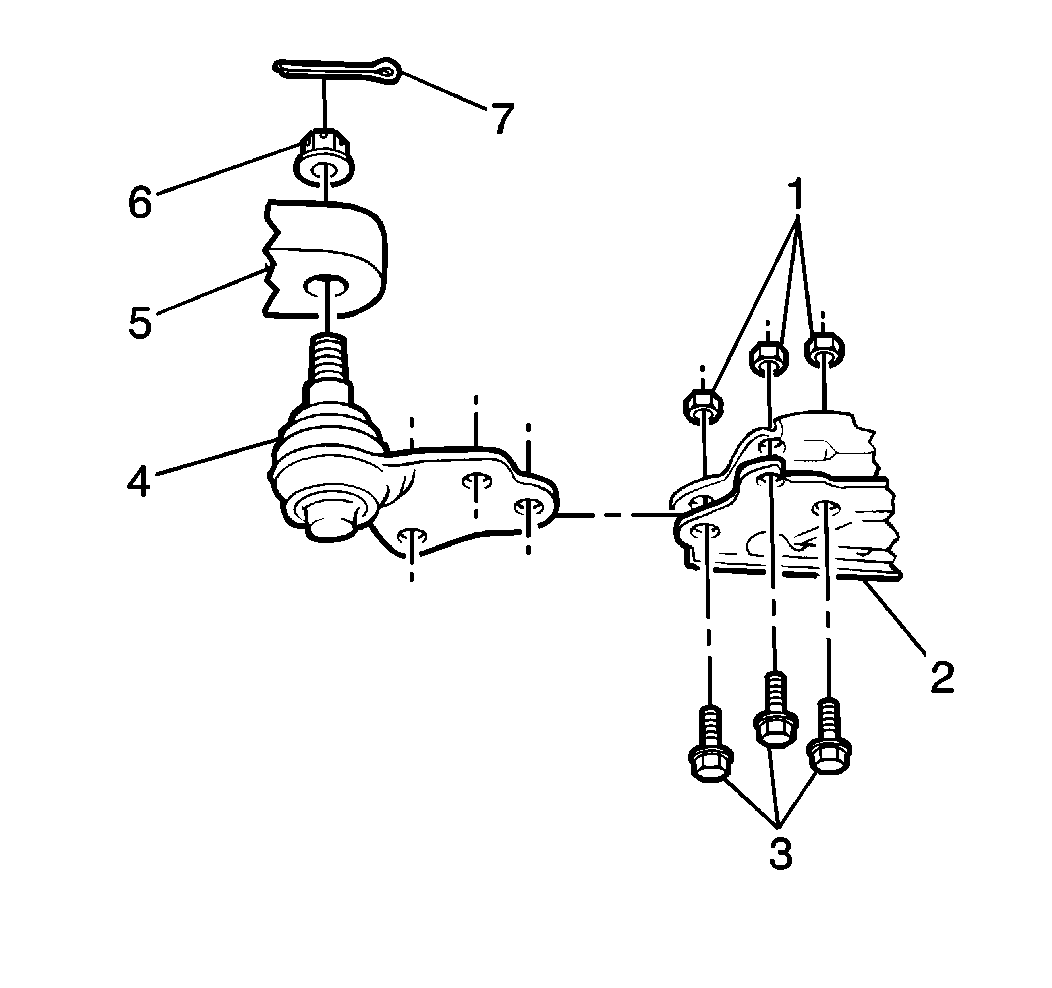Removal Procedure
Tools Required
J 43828 Ball Joint Separator
- Raise and support the vehicle. Refer to Lifting and Jacking the Vehicle in General Information.
- Remove the tire and wheel assembly. Refer to Tire and Wheel Removal and Installation in Tires and Wheels.
- Remove the wiring harness from the lower control arm.
- Remove the stabilizer shaft link. Refer to Stabilizer Shaft Link Replacement .
- Remove the cotter pin (1) and the nut (2) from the ball joint stud (3).
- Separate the ball joint stud from the steering knuckle using the J 43828 .
- Remove the bolts (7) and the nuts (8) from the lower control arm (9).
- Remove the rear crossmember bolts (3) from the lower control arm (9).
- Remove the lower control arm (9) from the crossmember (4).
- Install the control arm (4) into a vice.
- Drill out the three rivets retaining the ball joint to the lower control arm. Use a 3 mm (1/8 in) drill bit to make a pilot hole through the rivets. Finish drilling the rivets with a 13 mm (½ in) drill bit.
- Remove the ball joint from the lower control arm.
Notice: Care must be exercised to prevent the drive axle joints from being over-extended. When either end of the shaft is disconnected, over-extension of the joint could result in separation of the internal components and possible joint failure. Drive axle joint boot protectors should be used any time service is performed on or near the drive axles. Failure to observe this can result in interior joint or boot damage and possible joint failure.


Notice: Use only the recommended tool for separating the ball joint from the knuckle. Failure to use the recommended tool may cause damage to the ball joint and seal.

Installation Procedure
- Install the ball joint (4) in the control arm (2).
- Install the three ball joint bolts (3) and nuts (1) as shown on the instruction sheet in the ball joint kit. Tighten the ball joint bolts to specifications found in the ball joint kit.
- Install the lower control arm (9) to the crossmember (4).
- Install the rear crossmember bolts (3) to the lower control arm (9).
- Install the bolts (7) and the nuts (8) to the lower control arm (9).
- Install the steering knuckle to the ball joint stud (3).
- Install the nut (2) to the ball joint stud (3).
- Install the cotter pin (1).
- Install the stabilizer shaft link. Refer to Stabilizer Shaft Link Replacement .
- Install the wiring harness to the lower control arm.
- Install the tire and wheel assemblies. Refer to Tire and Wheel Removal and Installation .
- Lower the vehicle.
- Inspect the front wheel alignment. Refer to Wheel Alignment Measurement in Wheel Alignment.


Notice: Use the correct fastener in the correct location. Replacement fasteners must be the correct part number for that application. Fasteners requiring replacement or fasteners requiring the use of thread locking compound or sealant are identified in the service procedure. Do not use paints, lubricants, or corrosion inhibitors on fasteners or fastener joint surfaces unless specified. These coatings affect fastener torque and joint clamping force and may damage the fastener. Use the correct tightening sequence and specifications when installing fasteners in order to avoid damage to parts and systems.
Tighten
Tighten the bolts to 110 N·m (81 lb ft).
Tighten
Tighten the bolts to 107 N·m (79 lb ft).

Tighten
Tighten the nut to 55 N·m (41 lb ft) minimum,
65 N·m (55 lb ft) maximum, to install the cotter
pin.
